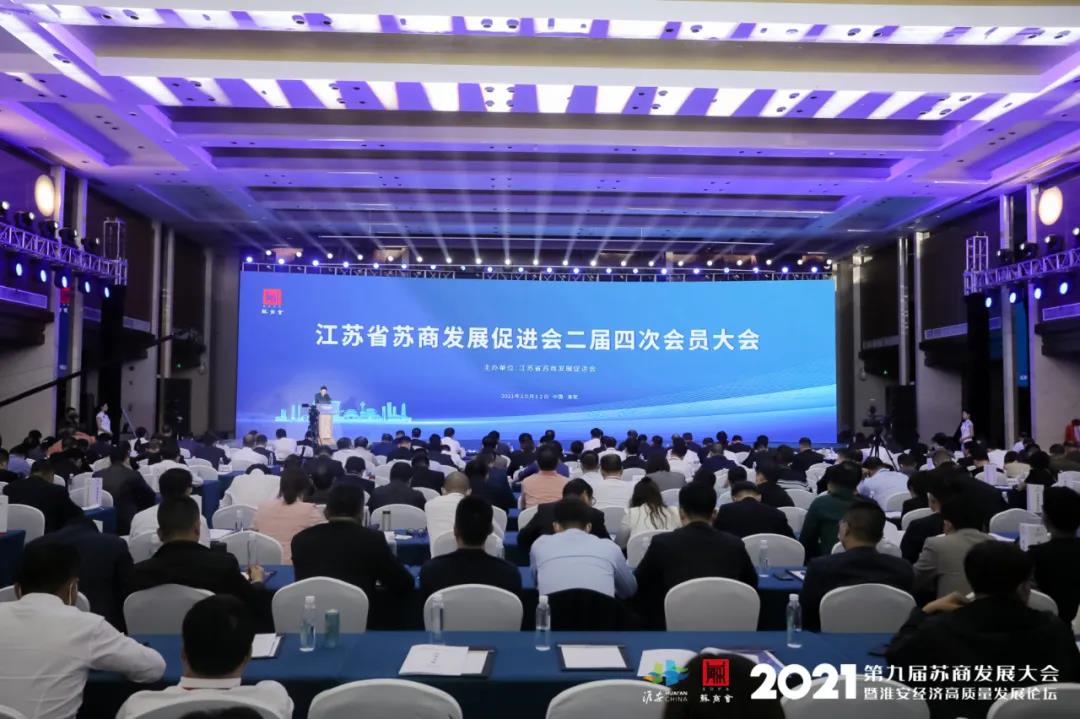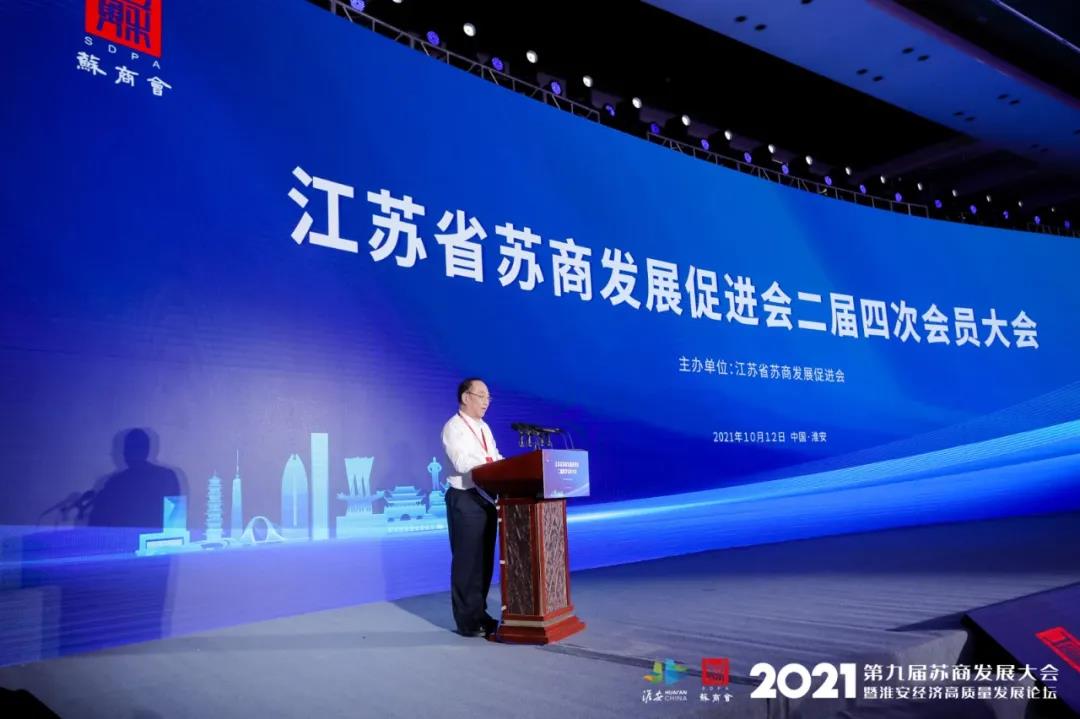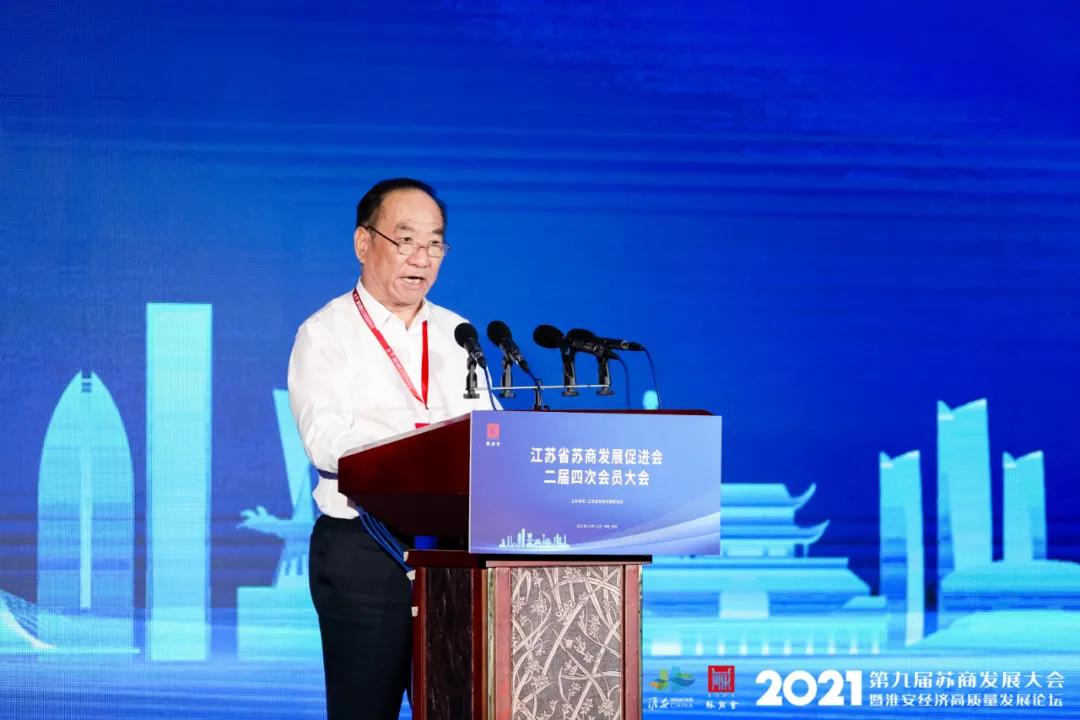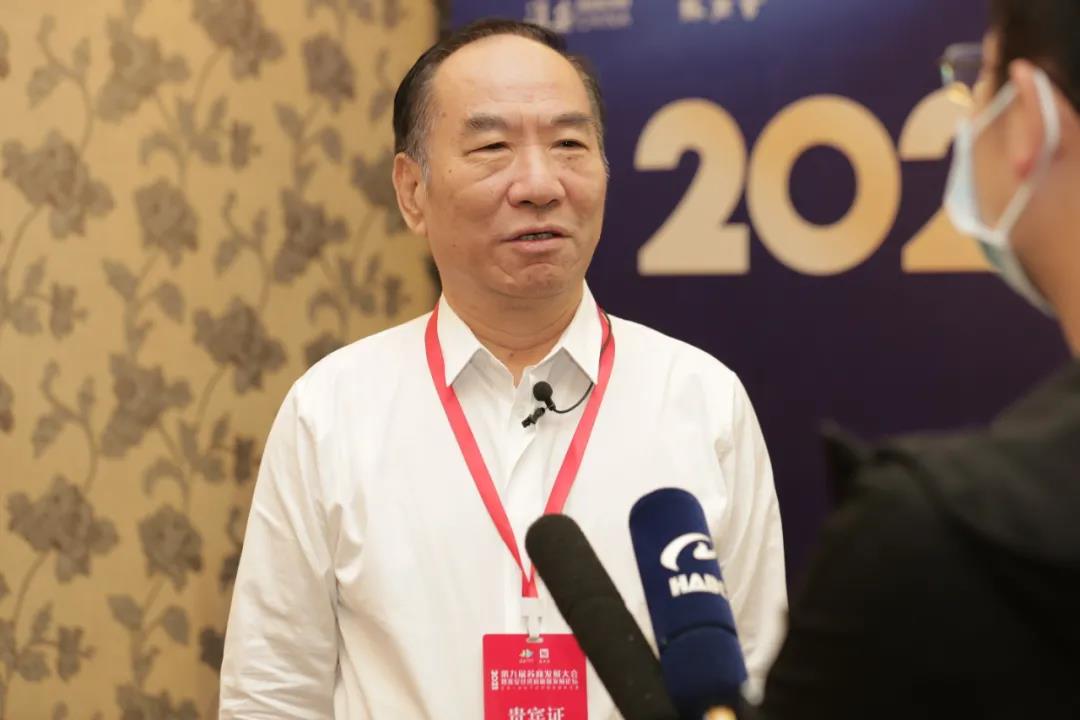
Jiangyin, named after "the yin side of the great river", is located at the narrowest section of the lower reaches of the Yangtze River. The unique features of the local environment have left their marks on the inhabitants. In Jiangyin, the most torrential water fosters the courageous entrepreneurs who never give up. The private economy here is well-developed. With more than fifty companies that have gone public, Jiangyin is known as "China's No. 1 Capital County".
Jiangsu Xinchao Investment Group Co., Ltd. Chairman Wang Xinchao is a typical Jiangyin entrepreneur, ready to fight and take risks in business. From his days as a junior high school graduate to China's semiconductor industry trendsetter, Wang Xinchao transformed an electronics factory on the verge of bankruptcy into China's number one public semiconductor packaging and testing enterprise. He has made his strong voice as a Jiangsu businessman heard in the development torrent of China's information industry.
Wang spoke during the 9th Sushang Development Conference and Huai'an High-Quality Economic Development Forum in 2021 and gave an interview to Sushang All Media on the hot topics of semiconductor industry development, regional integration, and the growth of young entrepreneurs.
Industry Underpins a Nation in Transformation

Founded in September 2000, Jiangsu Xinchao Investment Group Co., Ltd. is engaged primarily in integrated circuit packaging and testing, R&D, production and sales of automatic equipment, and investment in electronic, electrical, and electromechanical enterprises. JCET Group Founder Wang Xinchao took over this small company when Jiangyin Transistor Factory (the predecessor of JCET Group) was on the verge of bankruptcy.
From JCET Group to Jiangsu Xinchao, Wang Xinchao went through no lack of trials, big and small, and endured management system reform, product R&D innovation, financial crises, and mergers and acquisitions in his thirty years in business, finally coming out on top as China's integrated circuits trendsetter.
In the past two years, Wang Xinchao has slowly withdrawn from JCET Group to embark on another entrepreneurial attempt in the semiconductor industry. Wang Xinchao had the following to say about the Xinchao Group's investment in the semiconductor industry in his speech at the Sushang Development Conference:
"Huawei, ZTE, and some other companies faced repeated bans and restrictions. Shortfalls in the semiconductor industry have become a critical bottleneck to be addressed. As an investment company deeply involved in the semiconductor industry, the Xinchao Group's mission has always been to "Grow Steadily to Benefit Employees, Repay Shareholders, and Contribute to Society and the Development of the Semiconductor Industry". Continuous support for the semiconductor industry is what we do. The Xinchao Group has been focused on the semiconductor equipment and materials sector in the past few years. In the future, the Xinchao Group will focus on technological development, especially in the field of semiconductor design, to promote the development of the semiconductor industry and attract capital investment and industrial support, make technological breakthroughs, expand market footprints, and provide the semiconductor industry with the 'Xinchao Force' and the flag of 'Made in China'."
The Chinese economy has managed to buck the downward global economic trend, a fact Wang Xinchao understands in this way: "The world is currently passing through a period of great development, great transformation, and great adjustment. New technological revolution and industrial transformation are developing rapidly and in-depth. As the global spread of COVID-19 accelerated changes in the international landscape, economic globalization encountered headwinds, but China managed to buck the trend. This could be attributable to China's strength in physical manufacturing. At this moment, manufacturing remains the backbone of China."
Wang's confidence in the future of semiconductors comes not only from China's strong manufacturing capabilities but also from the support of the China Integrated Circuit Industry Investment Fund. In 2014, JCET Group completed an important acquisition. IC-Capital, the investment institution managing the China Integrated Circuit Industry Investment Fund, was strongly supportive and commented that if Chinese packaging companies were going global, they must build channel networks and upgrade technology to supply Chinese-made chips. With the help of such a fund, Wang Xinchao was able to live up to expectations and continue his fine work in the semiconductor industry, establishing the Xinchao Semiconductor Investment Fund to invest in design, equipment, and materials companies in the integrated circuit industry chain.
In an interview after the conference, Wang explained the reason for shifting the main business to semiconductor investment: "First of all, I am familiar with the semiconductor industry. China's semiconductor industry is now in a period of great development. In the current global situation, we cannot predict whether the raw materials, technology, and other elements needed for China's semiconductor development in the future will be restricted by Western countries. Therefore, we must explore this industry now by not only opening up for cooperation but also improving our capabilities and establishing an independent supply chain. Secondly, there are still many segments in the semiconductor industry for us to explore in depth. As such, the establishment of this investment fund will also foster more outstanding national semiconductor companies. As of today, Xinchao has invested in more than sixty such companies."
Fuse and Complement Across the River

Though in the same province of Jiangsu, Jiangyin and Huai'an are separated by the Yangtze River. As an entrepreneur from Jiangyin, Wang Xinchao was setting foot in Huai'an for the first time. At the Sushang Development Conference, he saw a good chance to get better acquainted with Huai'an's cultural traditions and business environment.
As he said during the interview: "Huai'an left a very good impression on me, and I gained a lot from this trip. In particular, I was impressed by Huai'an's commitment to creating an entrepreneurial environment with the lowest cost, the best policy, and the most return on investment. When an opportunity arises in the future, I will definitely invest or start a business in Huai'an, and I will also recommend Huai'an to my friends interested in investment and entrepreneurship."
Cross-river fusion has been a standing topic in Jiangsu's economic development. How southern and northern Jiangsu complement each other in the process of economic development was also an issue that governments and entrepreneurs at all levels in Jiangsu were considering.
Wang Xinchao believed that from the perspective of entrepreneurs, all preferred cities featuring better business environments or regional advantages complement those of the enterprise. "For example, the cost of human resources and land resources in Huai'an is lower than in southern Jiangsu cities, and service is also very efficient. This is an advantage that can attract companies and a development opportunity for northern Jiangsu areas. Human resources is indeed a big headache for manufacturing companies nowadays," Wang said.
From the perspective of the city, Wang Xinchao made four suggestions: "It is an important topic. The government needs to explore how the city can accelerate economic growth and stand out from the competition. First of all, the government must attach more importance to the city's industrial layout and development, especially the emerging technology promising to shape the future. The government must introduce promising industries rather than get stuck on sunset industries. Doing so will sustainably boost the city's economy. Secondly, the relevant authorities must create a good business environment and build a positive business vibe. Thirdly, the city should bring in more leading enterprises to promote the development of other enterprises. Lastly, the government needs to incubate new technologies and services and expand new markets. If a city relies on traditional industries for its development instead of growing emerging enterprises, it won't sustain the wave of industrial informatization, and will stunt the industrial transformation."
Carrying on the Legacy of Jiangsu Business and Setting the Trend

In the favorable context of reform and opening up, a lot of enterprises have been established and are blooming in Jiangsu province. By having the courage to think and act and being hard-working and pragmatic, Jiangsu businessmen (Sushang) have made Jiangsu's economic performance one of the strongest in China. Thirty years have passed, and the first batch of entrepreneurs are getting ready to pass the torch.
As the Co-chairman of the Jiangsu Sushang Development Promotion Association, Wang Xinchao had four suggestions for the next generation of Jiangsu Businessmen and entrepreneurs.
"First of all, young entrepreneurs must be passionate, whether starting or operating a business. The prerequisite for making a difference is that one must have a strong desire to do it."
"Secondly, I believe that business correlates strongly with the times, so corporate positioning is very important. In the past, businessmen simply needed to bring products to the market. This has changed nowadays, and the products we bring must be excellent. In particular, in today's environment filled with information and technologies, companies must possess unique innovations, be they in technology, products, or services. As a young Sushang, you must think about what the time requires you to do and whether you are unique enough to stand out."
"Thirdly, you need an excellent team. You need quality talent and a workforce to support your technology and management. For manufacturing, human resources are a top priority."
"The last point is motivation, which complements the third point. Retaining talent is as important as recruiting talent. One shouldn't be a monopoly in a company. Successful business leaders need to share interests so their business can co-exist and win together with their employees. Only in this way can their business grow and develop."